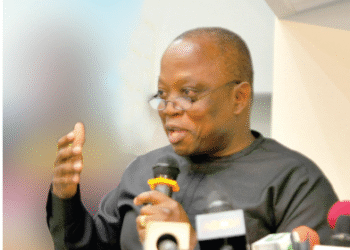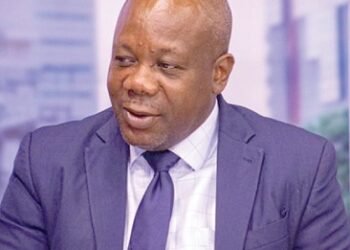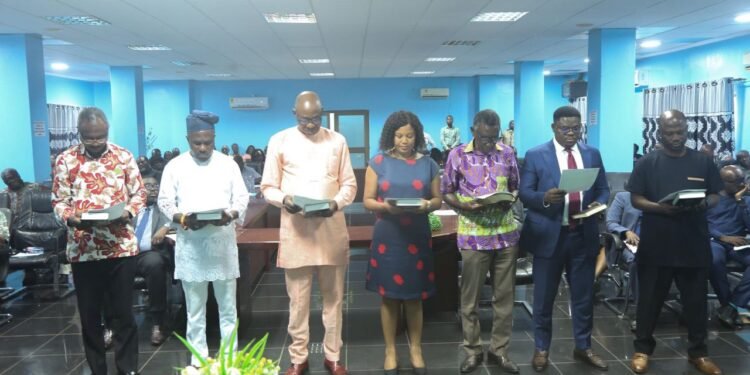The Honorary Vice President of IMANI Centre for Policy and Education, Bright Simons has called for a critical and thorough reading of the recently released report by the Commission on Human Rights and Administrative Justice (CHRAJ) regarding double identity and conflict of interest allegations against the Secretary to the National Cathedral Board, Rev. Victor Kusi-Boateng also known as Kwabena Adu Gyamfi.
The seasoned civil activist, in a compelling statement, emphasized that while the CHRAJ report addressed specific allegations, several crucial issues remain unresolved and merit further public and legal scrutiny.
“The issues before CHRAJ were very specific: Did the Secretary have PASSPORTS in different names; Did the soft loan he gave to the National Cathedral amount to a conflict of interest situation? CHRAJ said, no, in both cases”.
Bright Simons, Honorary Vice President of IMANI Centre for Policy and Education
However, Bright Simons underscored that the scope of CHRAJ’s inquiry was narrowly defined and did not address broader issues raised during public discourse and legal proceedings, adding that there are three critical areas that CHRAJ did not determine, even though evidence surfaced during its investigations.
Multiple Identities Across Forms of Identification
The IMANI’s Honorary Vice President further pointed out that while CHRAJ dismissed allegations of dual passports against the Executive Secretary of the Board of Trustees of the National Cathedral, it did not explore inconsistencies in other forms of identification, such as the Secretary’s driver’s license and Ghana Card.
He noted that a prior ruling by the High Court had confirmed the existence of different names across these IDs, raising questions about potential multiple identities.

Bright Simons also questioned how a company belonging to the Executive Secretary of the Board of Trustees of the National Cathedral, Rev. Victor Kusi-Boateng with objects strictly limited to talent and skills development could secure contracts in unrelated sectors like healthcare and generate substantial profits.
He raised concerns about whether these earnings were used to fund the soft loan to the National Cathedral, a project with government involvement. He critiqued the absence of standard corporate practices, such as a formal loan agreement, in the borrowing arrangement between the government-owned National Cathedral project and a private company.
Moreover, Bright Simons, the Honorary Vice President of the leading policy think-tank, IMANI Centre for Policy and Education contended that this lapse could expose the public purse to liabilities, as debts incurred by state-owned entities are often guaranteed by taxpayers.
Bright Simons’ remarks highlight broader issues of governance, transparency, and accountability in the National Cathedral project. The unresolved questions, he argued, point to systemic weaknesses in oversight mechanisms and the potential for abuse in state-private financial arrangements.
“The CHRAJ report did not rule on the double identity issue regarding the secretary to the National Cathedral board,” Bright Simons asserted, adding that the public and journalists must carefully dissect the findings and demand answers to the lingering questions.
He warned that the unresolved issues could have significant implications for public trust and the management of state resources.
Bright Simons urged investigative bodies, legal experts, and civil society organizations to take up the unresolved matters, stressing the need for a comprehensive audit of the National Cathedral project and its financial arrangements.
He also called on the public to hold state institutions accountable for ensuring transparency in projects that involve taxpayer funds.
READ ALSO: Atlantic Lithium Secures MergeCo Commitment for Ewoyaa























